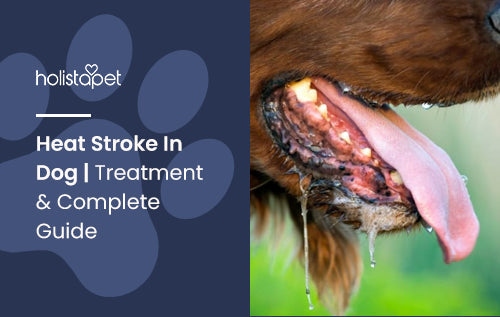It’s summertime, and the dogs are itching! Or, maybe it’s all the time that your dog seems itchy? If your furry friend is scratching more than usual you’re probably wondering, why is my dog so itchy? Finding the reason as to why your buddy is itching is key in determining whether or not you should seek a veterinarian’s help.
In general, it is more likely for your furry friend to itch during the summer because of the rise in pollens. Although many other things from fleas to ringworm can initiate intense itchiness in dogs. Learning how to discern the difference will allow you to notice the problem quickly and find a suitable solution.
Is It Normal For Dogs to Itch?

Are you constantly wondering why your dog is so itchy? This shows you care about and pay attention to your pup! A little itch here or there for dogs is as normal as it is for us. But, some pet owners have the misconception that it is in their dog’s nature to itch or lick themselves frequently. For your dog’s sanity, please do not believe this fallacy! It is important to know the difference between a normal itch and severe scratching.
What Is Severe Itching in Dogs?
Why is my dog itching so much? Your canine should itch just as much as you do. If you notice your best friend scratching themselves more than usual, it is time to analyze the dietary and environmental changes that have occurred. Keep in mind that intense itching is only a sign that something may be wrong, not a diagnosis.
Besides constant itching, there are some other telltale signs to look for, such as:
- Biting/licking skin
- Bald spots/hair loss
- Hot spots
- Irritated/inflamed skin
- Foul odor (from the skin)
Do Some Dog Breeds Itch More Than Others?
Why is my dog itching a lot? Although a large number of dogs are affected by skin allergies, there are a few breeds that are more prone to skin allergies than others— such as the French Bulldog, Dachshunds, Cocker Spaniels, German Shepherd, or Labrador Retriever. Allergic reactions occur at a young stage in your dog's life, so be sure to notice any changes in your dog's behavior when introducing the new food.
Also, it varies on the country or part of the country. If you got your puppy from a breeder, there is a chance your breeder has been crossing dogs that are known to have certain allergies.
Does My Dog Have Fleas?

Unfortunately, there are more serious reasons for your furry child to scratch than pollen. The most common reason is fleas, and chances are your dog might have had them. The bright side is that you can identify fleas easily. They are typically around the size of a speck of pepper and there are some common areas to check on your pup.
Fleas usually hide around the ear, head, neck, back, and under regions. If your dog has floppy ears, make sure to check underneath them. These parasites are the first thing your veterinarian will try to exclude if you take your dog in for scratching. If you have more than one animal in the house, be sure to check them all. Why is my dog is constantly scratching and biting himself home remedies? If your pet does have fleas, don’t panic, there are many home remedies to help!
Related Article: Home Remedies for Fleas on Dogs [Proven Methods]
Why Is My Pet So Itchy but Has No Fleas?
Why does my dog itch so much? Usually, it is common for a pet owner to jump to the conclusion that their dog is being chewed alive by fleas, but there are plenty of other possible reasons why your dog is so itchy. Before you call up your veterinarian, take a look for some of the common causes for scratching, biting, and licking:
Parasites
Besides those pesky fleas, there are other parasites to keep an out for
dog won't stop itching. Ticks love to attach themselves to canines causing them excessive irritation and the urge to scratch. A tick’s body size can range between 1/16 and 1/8 of an inch. Ticks can be hard to spot because they like to hide in odd places and burrow partway into the skin while feasting on blood and avoiding detection.
Ticks typically like to hide beneath the color, under the tail, around the groin, on the legs or elbows, and between toes. These sneaky parasites can even hide under the eyelids.
Related Post: Parasites in Dogs: Types, Symptoms, & Prevention
Ear Mites
Another irritating parasite to look for on your canine is ear mites. If you notice your dog scratching their ears excessively, there’s a chance they caught ear mites. Ear mites like to reside under a dog’s ear and eat earwax and oils. Other signs to look for are crust or irritation around the ears, discharge from the ear, head shaking, or hair loss by the ears.
Related Post: Grass Mites On Dogs [Causes, Symptoms, & Treatments]
Mange

Mange is caused by Demodex mites. Unlike fleas, ticks, and ear mites, Demodex mites are not visible because they are a fraction of a millimeter and they burrow beneath the skin. In order to determine and classify mange, a veterinarian needs to inspect a skin sample from your dog. There are, however, some other signs to look for: crusty or scaly skin, scabs, redness, rash, hair loss, pus, hotspots, foul odor, and of course scratching and biting their skin.
Ringworm
Ringworm is a frequent occurrence that can affect the skin, fur, and also nails. Ringworms are particularly dangerous because it can spread to other animals and humans inside the house. If you notice hair loss, itching, flaky or a crusty coat, misshapen, or brittle nails, take your doggy to the vet for treatments as soon as possible!
Treatments for ringworm are simple and efficient. Make sure you disinfect your house once a diagnosis has been made to stop the spread of this fungal infection. For those who look to avoid the vet bills, there are some home treatments for ringworm that may help.
Yeast Infection
Yeast Infection is caused by the overproduction of fungal bacteria on a dog's skin. It is inflamed by the moisture in the air and the areas of the skin that can hold the most moisture. Although you as a pet owner can not confirm if your dog has a yeast infection, you can look for clues that can detect signs. Some pooches are prone to yeast infections more than others. Building up your dog's immune system might make all the difference. A lot of health issues are linked to your dog's immunity, so it is important to take care of it. You can find out more about dog care on this page.
Dry Skin
A dog with dry skin can truly be can be a reason for its itchy discomfort. The slightest touch can be a catalyst for your dog's excessive scratching. Depending on where you reside, your dog (and you), could be prone to dry skin. In places with low humidity your furry friend my begin getting dandruff, which will cause him/her to itch.
It should be noted that the food you feed your canine may contribute to the dry skin. To help your dog's coat, you might want to feed him/her food with healthy fatty acids. Unfortunately, some dry dog foods are known to dehydrate dogs. If your dog's skin is dry, there might be a nutritional imbalance.
You can easily identify dry skin by parting the hair. If the skin appears flaky or scaly, your dog may have dry skin. Dogs with dry skin can itch but are usually never the only reason why your dog is itching and is usually a result of allergies.
Allergies
It's weird to think your hound has allergic reactions, but it is actually pretty common! Allergies can cause atopic dermatitis, which is caused when a canine's immune system is overreacting to a normal environmental or dietary element. Your pooch might overcompensate to discomfort by vigorously itching his/her skin.
This can potentially cause breakage in the skin or cause ulcers that will inevitably make your pooch more prone to other infections. Your veterinarian would be able to target the reason for your dog's allergies, but here are some things that may trigger it.
Environmental Allergies
Environmental allergens are mostly seasonal. Pollen can be the major reason your dog is itching. Unlike humans, a dog’s hair floccule does not have an outer root sheath to stop things from getting in, therefore, their skin is much more sensitive than ours. The pollens from grass and plants can easily sneak their way in the follicle causing your buddy to itch.
Pollen can also enter the body through the respiratory tract or eyes. Dogs with dry skin have a higher chance of having an allergic reaction to environmental allergens in areas with low humidity. Keeping your pet indoors might help reduce environmental allergies. Another alternative is to find a good allergy medicine that works well for your dog.
Food Allergies
According to the former president of the American Holistic Veterinary Medical Association, Susan Wynn, 10% of allergies are caused by diet in dogs. However, there is a difference between intolerance and an allergic reaction. Besides scratching, the signs your dog may be having a reaction are chronic ear inflammation, gastrointestinal problems, chronic diarrhea to chronic gas, licking their feet, or an itchy rear end.
Above are the most common reactions, but it does not stop there. The most common allergens are beef, dairy, wheat, egg, chicken, lamb, soy, pork, rabbit, and fish. And, most pooches are usually allergic to more than one thing! The only true treatment would be to find out exactly what your pooch is allergic to and avoid it.
Related Product: CBD Dog Treat By Holistapet
Home Treatments
Unfortunately, sometimes the treatment for this is not that simple. The goal is to promote a healthy digestive system so it can absorb fluids from the foods your pet eats. Probiotics are known to help the digestive tract by having high amounts of digestive enzymes. Clinical research has shown that high-potency cultures of beneficial probiotic bacteria help prevent pets from developing allergies.
Also, providing fresh, filtered drinking water can improve the quality of your dog's coat. Besides the dietary changes, ask your groomer to use a hydrating shampoo and conditioner for itchy skin, and to turn down the heat on the blow dryer. Regrettably, not all itches can be treated with some TLC.
In those cases, all you can do as a pet owner is comfort your bud until you get them to a vet. There are at-home remedies you can try, such as oatmeal baths, apple cider vinegar & water spray, natural skin tonic, Omega 3s, coconut oil, CBD oil, baking soda, neem oil, yellow dock, vitamin E oil, yogurt, olive oil, chamomile, calendula, and Epsom salt soak.
Final Thoughts
Even if your dog stops itching, the underlying health issue may not be resolved. Be sure to check-in regularly with your vet to confirm your dog's stable condition. Scratching is a major discomfort, so don't let your best friend suffer any longer than he/she has to!. Read more.


 CBD Oil for Dogs - Fast Acting
CBD Oil for Dogs - Fast Acting
 Chicken Flavored CBD Oil For Dogs - Easy Dose
Chicken Flavored CBD Oil For Dogs - Easy Dose
 Salmon Flavored CBD Oil For Dogs - Highly Rated
Salmon Flavored CBD Oil For Dogs - Highly Rated
 CBG Oil for Dogs and Cats - Loved by Thousands
CBG Oil for Dogs and Cats - Loved by Thousands





Leave a comment
All comments are moderated before being published.
This site is protected by hCaptcha and the hCaptcha Privacy Policy and Terms of Service apply.